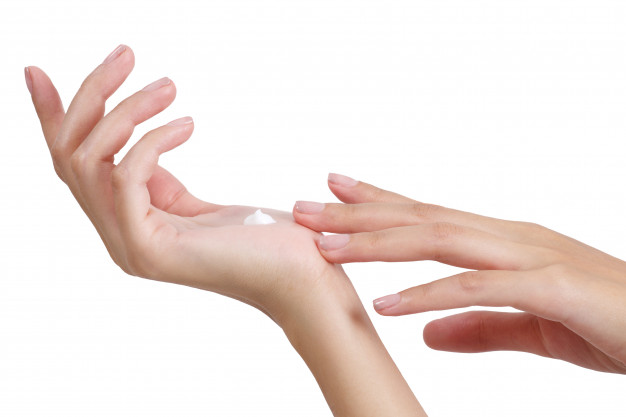Winter is a time of cozy sweaters, hot drinks, and festive cheer, but it also brings harsh cold temperatures that can wreak havoc on our skin—especially our hands. The hands are often the most exposed part of our body during the colder months, making them more susceptible to the drying and damaging effects of winter weather. From cold air to indoor heating, several factors contribute to the condition of our hands in winter. Understanding these factors can help us take better care of our skin during this season.
We use our hands to do most things so we must take care of them! Check out our article on how to give them a therapeutic massage. http://beautyfemina.com/how-to-give-a-hand-massage/
1. Dryness and Cracking

One of the most noticeable effects of winter on our hands is dryness. The cold, dry air outside, combined with the dry, heated air inside, strips the skin of its natural moisture. As a result, the skin can become rough, flaky, and cracked. This is particularly common on the hands, which are constantly exposed to the elements, making them vulnerable to becoming irritated and inflamed.
When the skin loses moisture, it becomes less flexible, leading to cracking and discomfort. Cracked hands can also be painful and, in severe cases, may lead to bleeding. If not addressed, this dryness can result in long-term damage to the skin’s barrier, making it more prone to infections.
2. Chapped and Red Hands
In addition to dryness, the cold weather can cause the skin on your hands to become chapped. Chapped hands appear red, irritated, and rough, often accompanied by itching or stinging. This occurs when the skin’s protective barrier is compromised by exposure to cold and wind.
The lack of moisture in the air during winter means that the skin doesn’t retain as much hydration, leading to redness and irritation. This can be particularly problematic for people with pre-existing skin conditions, such as eczema or psoriasis, as the cold can exacerbate these conditions and make symptoms worse.
3. Decreased Blood Flow
The cold temperatures in winter cause blood vessels to constrict, which can reduce blood flow to the extremities, including the hands. When blood circulation is limited, the hands may feel cold and numb, and the skin may appear pale or even take on a bluish tint. Poor circulation can make the skin more susceptible to damage, as it doesn’t receive the necessary nutrients to stay healthy and hydrated.
Additionally, reduced blood flow can make it more difficult for the skin to repair itself, leaving hands more vulnerable to the effects of harsh weather. This is why it’s important to keep your hands warm and well-protected during the winter months.
4. Frostbite and Chilblains
In extreme cold conditions, frostbite can become a real concern. Frostbite occurs when the skin and underlying tissues freeze due to prolonged exposure to freezing temperatures. Although frostbite typically affects the toes, fingers, ears, and nose, the hands are particularly susceptible when exposed to subzero temperatures for long periods.
Chilblains, another condition related to cold exposure, is characterized by painful, red, swollen areas on the skin, usually on the fingers and toes. Chilblains occur when the skin is exposed to cold, then warmed up too quickly, causing blood vessels to expand and leak blood into the surrounding tissues. This can cause discomfort and irritation, and in severe cases, it can lead to permanent skin damage.
5. How to Protect Your Hands in Winter
While winter weather can be tough on your hands, there are several steps you can take to protect your skin and keep your hands soft and healthy throughout the season.
- Moisturize Regularly: One of the most important things you can do to prevent dry, cracked hands is to moisturize regularly. Look for thick, emollient-rich hand creams or oils that are designed to provide long-lasting hydration. Apply moisturizer right after washing your hands to lock in moisture while your skin is still damp.
- Wear Gloves: To protect your hands from the cold, it’s essential to wear gloves whenever you go outside. Gloves act as a barrier between your skin and the harsh outdoor elements, helping to retain moisture and keep your hands warm. Choose gloves made from insulating materials, such as wool or fleece, and make sure they are snug enough to retain heat without being too tight.
- Avoid Hot Water: While it might be tempting to use hot water to wash your hands during the winter, hot water can strip the skin of its natural oils, leading to further dryness. Instead, opt for lukewarm water and use a gentle, hydrating soap to prevent your skin from becoming too dry.
- Humidify Your Home: Indoor heating systems can dry out the air inside your home, making the air even drier than outside. To combat this, consider using a humidifier to add moisture back into the air, which can help prevent your skin from drying out.
- Use a Protective Barrier: If you know you’ll be spending time outside in the cold, apply a thick layer of petroleum jelly or a barrier cream to your hands before heading out. These products help lock in moisture and protect your skin from the wind and cold.
- Hydrate from the Inside: Staying hydrated is just as important for your skin as moisturizing from the outside. Drink plenty of water throughout the winter months to keep your skin hydrated and support your overall health.
Check out this article on the 9 best gloves you can wear when going out during winter! https://www.outdoorgearlab.com/topics/snow-sports/best-winter-gloves
Conclusion
Winter weather can take a toll on our hands, causing dryness, cracking, and irritation. The combination of cold air, indoor heating, and reduced blood circulation makes our hands more susceptible to skin damage. However, with proper care, including moisturizing regularly, wearing gloves, and protecting the skin from the cold, you can keep your hands soft, healthy, and comfortable throughout the season. By taking a few simple precautions, you can enjoy all the winter activities without worrying about the effects on your skin.

